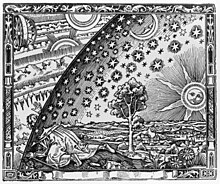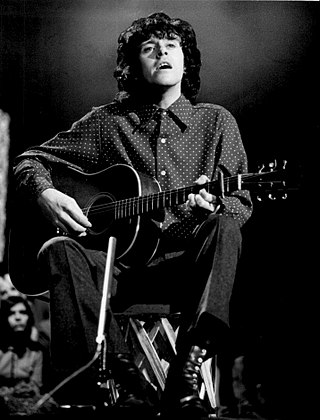
Donovan Phillips Leitch, known mononymously as Donovan, is a Scottish musician, songwriter and record producer. He emerged from the British folk scene in early 1965, and subsequently scored multiple international hit singles and albums during the late 1960s. His work became emblematic of the flower power era with its blend of folk, pop, psychedelic rock, and jazz stylings.
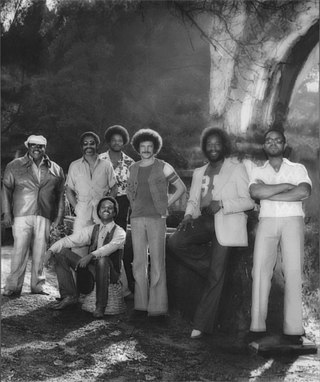
War is an American funk/rock/soul/Latin band from Long Beach, California, known for several hit songs . Formed in 1969, War is a musical crossover band that fuses elements of rock, funk, jazz, Latin, rhythm and blues, psychedelia, and reggae. According to music writer Colin Larkin, their "potent fusion of funk, R&B, rock and Latin styles produced a progressive soul sound", while Martin C. Strong calls them "one of the fiercest progressive soul combos of the '70s". Their album The World Is a Ghetto was Billboard's best-selling album of 1973. The band transcended racial and cultural barriers with a multi-ethnic line-up. War was subject to many line-up changes over the course of its existence, leaving member Leroy "Lonnie" Jordan as the only original member in the current line-up; four other members created a new group called the Lowrider Band.
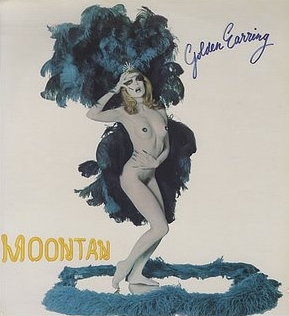
Moontan is the ninth album by Dutch rock band Golden Earring, released in 1973. It contains the radio hit "Radar Love", and was voted ninth-best Dutch pop album ever by readers of music magazine Oor in 2008. In the Q & Mojo Classic Special Edition Pink Floyd & The Story of Prog Rock, the album rated No. 32 in its list of "40 Cosmic Rock Albums". Moontan is the band's most successful album in the United States, being the only Golden Earring album to be certified Gold by the RIAA.

Alice Cooper's Greatest Hits is the only greatest hits album by American rock band Alice Cooper, and their last release as a band. Released in 1974, it features hit songs from five of the band's seven studio albums. It does not include any material from their first two albums, Pretties for You and Easy Action.

Welcome to My Nightmare is the debut solo studio album by American rock musician Alice Cooper, released on February 28, 1975. It is his only album for the Atlantic Records label in North America; in the rest of the world, it was released on the ABC subsidiary Anchor Records. Welcome to My Nightmare is a concept album. Played in sequence, the songs form a journey through the nightmares of a child named Steven. The album inspired the Alice Cooper: The Nightmare TV special, a worldwide concert tour in 1975, and his Welcome to My Nightmare concert film in 1976. The ensuing tour was one of the most over-the-top excursions of that era. Most of Lou Reed's band joined Cooper for this record.
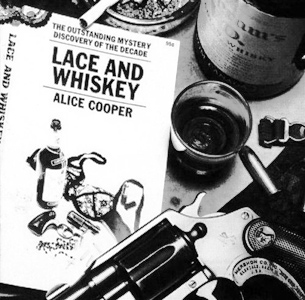
Lace and Whiskey is the third solo and tenth overall studio album by American rock singer Alice Cooper, released on April 29, 1977, by Warner Bros. Records.

Essence to Essence is the eleventh studio album, and thirteenth album overall, from Scottish singer-songwriter Donovan. It was released in both the UK and the US in December 1973.
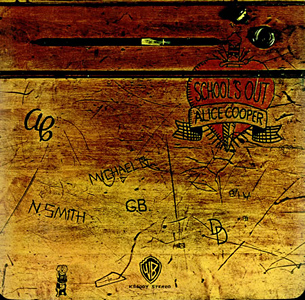
School's Out is the fifth studio album by American rock band Alice Cooper, released in June 1972. Following on from the success of Killer, School's Out reached No. 2 on the US Billboard 200 chart and No. 1 on the Canadian RPM 100 Top Albums chart, holding the top position for four weeks. The single "School's Out" reached No. 7 on the Billboard Hot 100, No. 3 on the Canadian RPM Top Singles Chart and went to No. 1 in the UK Singles Chart.

7-Tease is an album by the Scottish singer-songwriter Donovan. It was released in the US in November 1974 and in the UK in January 1975.

Slow Down World is the thirteenth studio album by Scottish singer/songwriter Donovan, released in the US in May 1976 and the UK on 4 June 1976.

Killer is the fourth studio album by American rock band Alice Cooper, released in November 1971 by Warner Bros. Records. The album peaked at No. 21 on the Billboard 200 album chart, and the two singles "Under My Wheels" and "Be My Lover" made the Billboard Hot 100 chart.
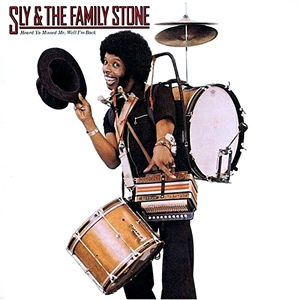
Heard Ya Missed Me, Well I'm Back is the eighth studio album by American funk/soul/rock band Sly and the Family Stone, released by Epic/CBS Records in 1976. This album is an effort to return the idea of the "Family Stone" band to singer/songwriter/multi-instrumentalist Sly Stone's work, after his previous album, High on You, was released without the Family Stone name. It also reflects the beginnings of change in the concept of "Sly and the Family Stone". The original Family Stone had broken up in 1975, and a new Family Stone was assembled for this album: the only holdover is stalwart Family Stone trumpetist Cynthia Robinson. Vet Stone and Elva Mouton, both formerly members of Family Stone backing band Little Sister, are credited as providing "additional background vocals", and John Colla is credited as providing "alto and soprano saxes, vocals". Colla would go on to become a founding member and integral part of "Huey Lewis and The News", both producing and penning such hits as "Heart of Rock & Roll", "Power of Love", and "If This Is It".

Welcome is the fifth studio album by Santana, released in 1973. It followed the jazz-fusion formula that the preceding Caravanserai had inaugurated, but with an expanded and different lineup this time. Gregg Rolie had left the band along with Neal Schon to form Journey, and they were replaced by Tom Coster, Richard Kermode and Leon Thomas, along with guest John McLaughlin, who had collaborated with Carlos Santana on Love Devotion Surrender. Welcome also featured John Coltrane's widow, Alice, as a pianist on the album's opening track, "Going Home" and Flora Purim on vocals. This album was far more experimental than the first four albums, and Welcome did not produce any hit singles.
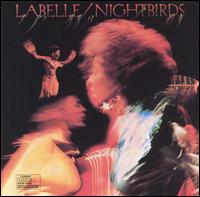
Nightbirds is an album by the all-female singing group Labelle, released in 1974 on the Epic label. The album features the group's biggest hit, the song "Lady Marmalade," and it became their most successful album to date.
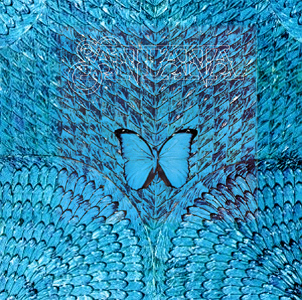
Borboletta is the sixth studio album by the American Latin rock band Santana. It is one of their jazz-funk-fusion oriented albums, along with Caravanserai (1972), and Welcome (1973). Non-band albums by Carlos Santana in this style also include Love Devotion Surrender (1973) with John McLaughlin and Illuminations (1974) with Alice Coltrane, Jack DeJohnette and Jules Broussard. The guitarist leaves much room to percussion, saxophone and keyboards to set moods, as well as lengthy solos by himself and vocals. The record was released in a metallic blue sleeve displaying a butterfly, an allusion to the album Butterfly Dreams (1973) by Brazilian musician Flora Purim and her husband Airto Moreira, whose contributions deeply influenced the sound of Borboletta. In Portuguese, borboleta means "butterfly".
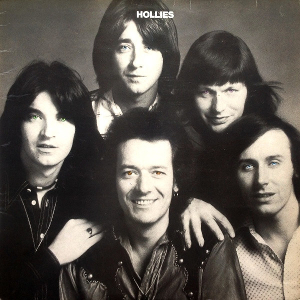
Hollies is the 14th UK studio album by the English pop rock group the Hollies, released in 1974, marking the return of Allan Clarke after he had left for a solo career. It features the band's cover of Albert Hammond's ballad "The Air That I Breathe," a major worldwide hit that year. The album has the same title as the band's third album from 1965.
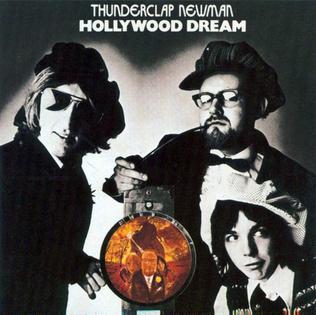
Hollywood Dream is the only studio album by British rock band Thunderclap Newman.

Making Music is the fourth studio album by American soul singer-songwriter and producer Bill Withers, released in 1975. It was also released in the UK as Making Friends.
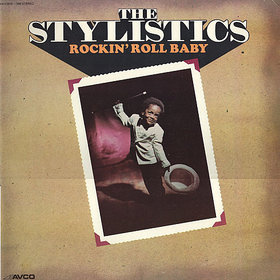
Rockin' Roll Baby is the third studio album recorded by American R&B group The Stylistics, released in November 1973 on the Avco label. It was produced by Thom Bell and recorded at Sigma Sound Studio North in Philadelphia. This was the group's last album produced by Bell.
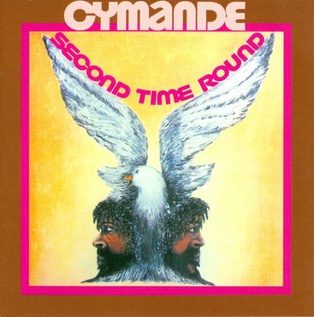
Second Time Round is the second studio album by British funk group Cymande. It was released in 1973 through Janus Records and produced entirely by John Schroeder. Recording sessions took place at De Lane Lea Studios in London.

